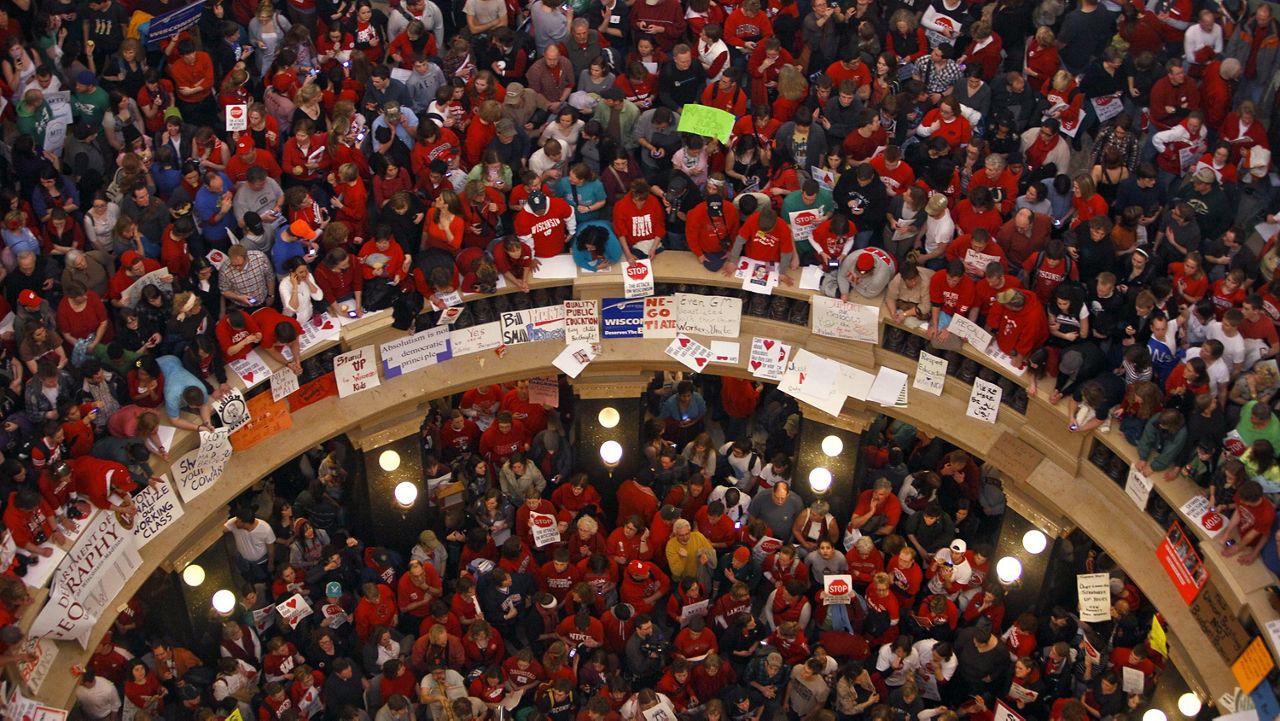MADISON, Wis. (AP) — A Wisconsin judge on Wednesday temporarily put on hold his recent ruling that restored collective bargaining rights to teachers and most other public workers that were lost under a 2011 state law that sparked weeks of protests and made the state the center of the national battle over union rights.
That law, known as Act 10, effectively ended the ability of most public employees to bargain for wage increases and other issues, and forced them to pay more for health insurance and retirement benefits.
Dane County Circuit Judge Jacob Frost on Wednesday granted a temporary stay of his Dec. 2 ruling striking down most of the law as unconstitutional. The stay is in place while Frost considers written arguments over whether to place his ruling on hold while the Legislature appeals it.
Those arguments are due to the court by Jan. 24, meaning the ruling will likely be on hold until at least then and maybe longer. Some unions had pushed for the reopening of contract negotiations after Frost struck down the law.
An attorney for the unions that filed the lawsuit declined immediate comment.
Under his ruling, all public sector workers who lost their collective bargaining power would have it restored to what was in place before 2011. They would be treated the same as the police, firefighter and other public safety unions that were exempted under the law.
Republicans immediately appealed and the case is ultimately expected to go to the Wisconsin Supreme Court.
Supporters of the law have said it provided local governments more control over workers and the powers they needed to cut costs. Repealing the law, which allowed schools and local governments to raise money through higher employee contributions for benefits, would bankrupt those entities, backers of Act 10 have argued.
Democratic opponents argue that the law has hurt schools and other government agencies by taking away the ability of employees to collectively bargain for their pay and working conditions.



